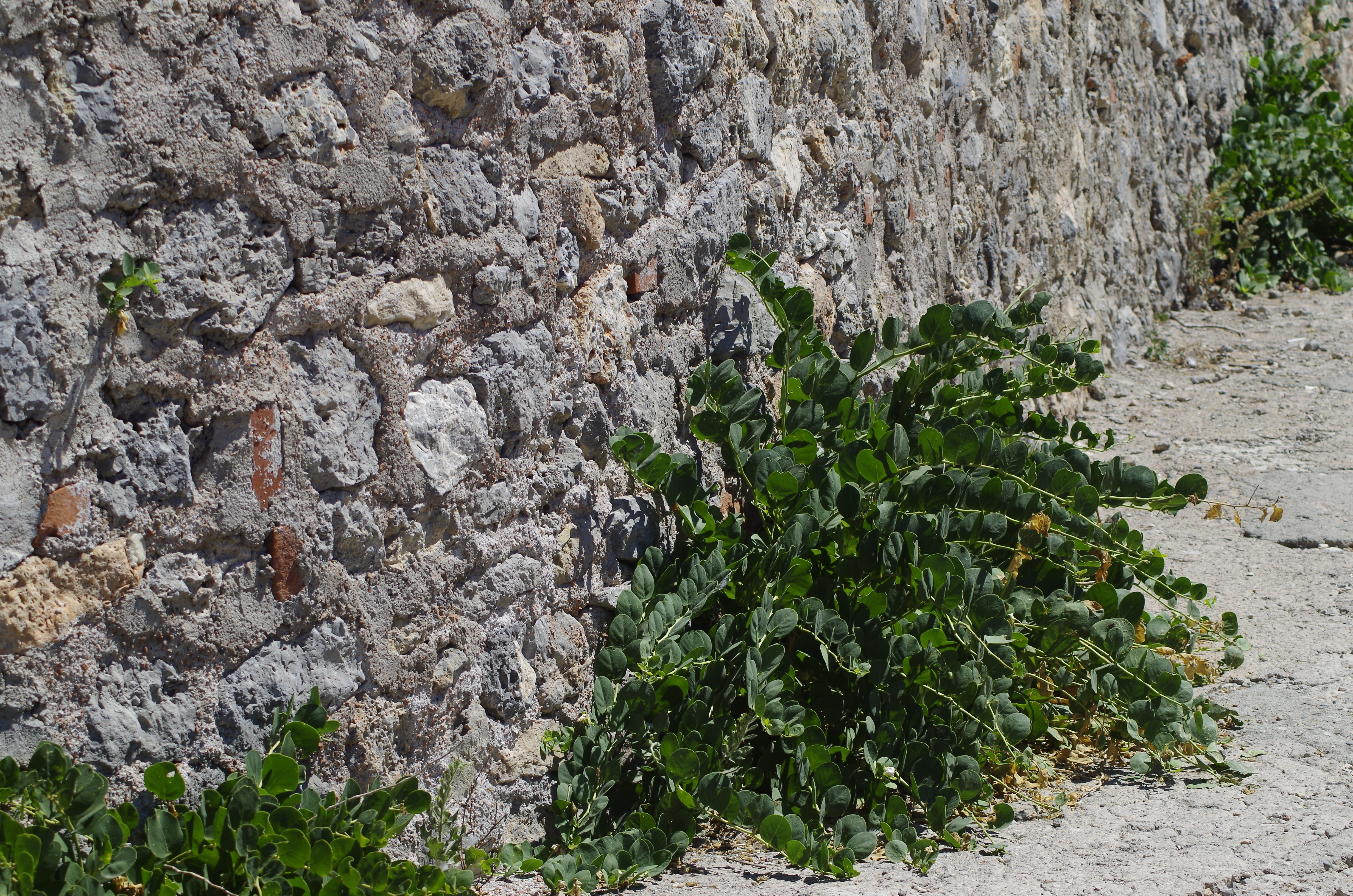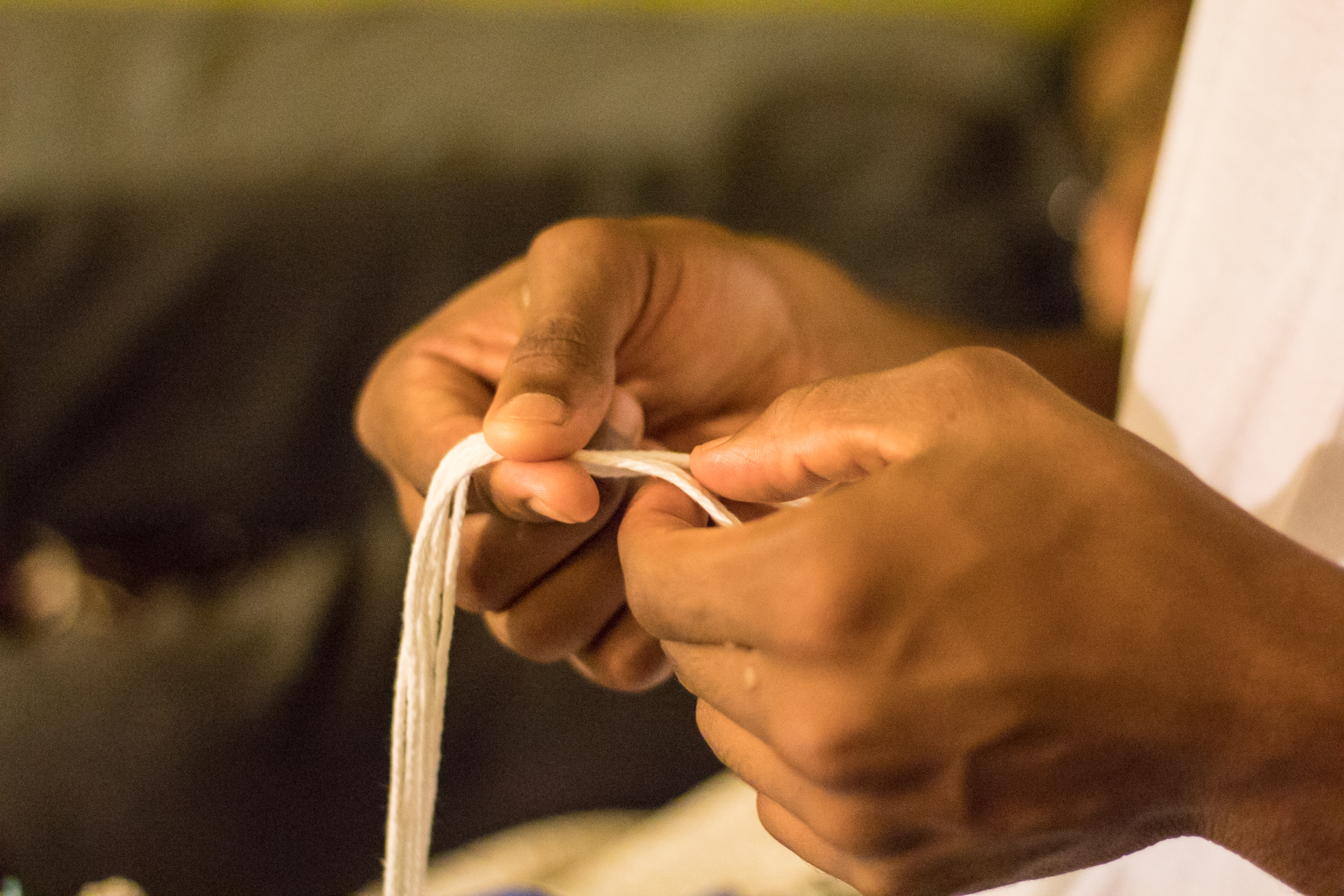The Gemara (Shabbos 150b) tells the story of a certain pious man who was passing by the wall around his field on Shabbos and noticed that there was a breach in the wall. Having momentarily forgotten that it was Shabbos, he made a mental note that he needs to repair the wall. Immediately thereafter, he remembered it was Shabbos, and felt very bad that he had made business-related plans on Shabbos. In order to “atone” for this mistake, he pledged never to repair the wall, forever. A miracle happened and a caper tree grew right in that spot and filled in the open area of the wall. The Gemara adds that the man and his family were able to sustain themselves from this tree, as not only is the caper tree’s fruit edible, but its bark and leaves are, as well.
Clearly, this man was acting above and beyond the strict halachic requirements. For one thing, it is not forbidden to think silently about business matters on Shabbos, and, even if it were forbidden, there would be no requirement to punish oneself in this fashion. His actions, however, teach us a number of lessons, including the importance of keeping Shabbos on one’s mind throughout Shabbos. The pious man’s small infraction resulted from a momentary lapse, when he very briefly forgot that it was Shabbos, and the gravity with which he viewed this lapse shows us how important it is to ensure to remain mindful of Shabbos throughout the day.

This message of the story is reinforced by the Ben Ish Chai, in his commentary to the Gemara, who associates this story with an incident (Bamidbar 15:32) of a man who was gathering twigs on Shabbos. The Torah relates that people saw this man violating Shabbos and brought him to Moshe. Hashem told Moshe that Shabbos violation is a capital offense and punishable by stoning, and the man was put to death. The Gemara (Sanhedrin) and the Midrash (Yalkut Shimoni) identify the sinner as Tzelafchad, who is mentioned later in the Torah, when his daughters were granted his portion in Eretz Yisrael. Tosafos comment that the sinner committed his act with noble intentions, as he transgressed Shabbos so that he would be punished and thereby teach the people the importance of Shabbos observance. His intentions were noble, but his actions were improper.
The Arizal, as the Ben Ish Chai cites, taught that the pious man in the Gemara’s story had a “spark” of Tzelafchad. Through his pious act, he rectified the mistake made by Tzelafchad when he desecrated Shabbos. When one seeks to rectify a mistake, he needs to go to the furthest opposite extreme, and thus to rectify Tzelafchad’s mistake, this man went so far as to refrain from fixing the wall even after Shabbos. For this reason, the Arizal explained, he was rewarded with a caper tree, which in Aramaic is צלף חד , “one caper,” which also spells the name Tzelafchad. The man was supported by this tree, the Arizal said, to symbolize the fact that he was sustained by the merit of this deed, whereby he rectified the sin of Tzelafchad.
The Ben Ish Chai develops this association further, noting several connections between the two episodes. Tzelafchad sinned by collecting wood from a tree, and thus the pious man was rewarded with a tree. The punishment for Tzelafchad’s act was stoning, and the breach was found in a stone wall. Shabbos is observed in three areas — actions, speech, and thought — and so the pious man received three benefits from the caper (the fruit, the bark, and the leaves).
There is also an additional, especially meaningful point of connection between the story of the pious man and the story of Tzelafchad. The Tanna Dvei Eliyahu (Chapter 26) tells us that after that tragic incident occurred, Hashem explained to Moshe Rabbeinu how the mistake came to be — because the one who gathered twigs was not mindful of Shabbos. Throughout the week, we have our tefillin to remind us of our responsibilities to Hashem, but on Shabbos, we do not wear tefillin and thus do not have this reminder. The sinner thus failed to remain mindful of Shabbos, and this led him to commit his offense.

In response, the Tanna Dvei Eliyahu says, Hashem gave us the mitzvah of tzitzis, which serves to remind us of the mitzvos, as the pasuk states (Bamidbar 15:39), “It shall constitute tzitzis for you, that you may see it and remember all the commandments of Hashem and perform them.” Chazal teach us that the mitzvah of tzitzis is equal to all the other mitzvos combined, and they also say this about Shabbos. The mitzvah of tzitzis was given as a reminder to safeguard against violations of Shabbos, and thus it, like Shabbos, is equivalent to all the Torah’s commandments. For this reason, the section of tzitzis appears in the Torah immediately following the episode of the man who desecrated the Shabbos.
The pious man in the Gemara’s story made his mistake by momentarily forgetting about Shabbos — the very same cause of Tzelafchad’s sin. He then corrected this mistake by pledging not to repair the wall, thereby rectifying the mistake made many years earlier by Tzelafchad.
We must try as best we can to be conscious of, and sensitive to, the special sanctity of Shabbos throughout the day, and this awareness will serve to protect us and help us avoid mistakes, while allowing us to gain the maximum benefits from the unique kedushah of Shabbos.
————————————————————-
Reproduced from Living Shabbos by Rabbi David Sutton
ArtScroll / Mesorah Publications Ltd. Reprinted with permission.





